Feadship delivers 84m Obsidian
The Dutch shipbuilder claims its latest renewable diesel-powered delivery brings it one step closer to building completely carbon-neutral yachts by 2030…
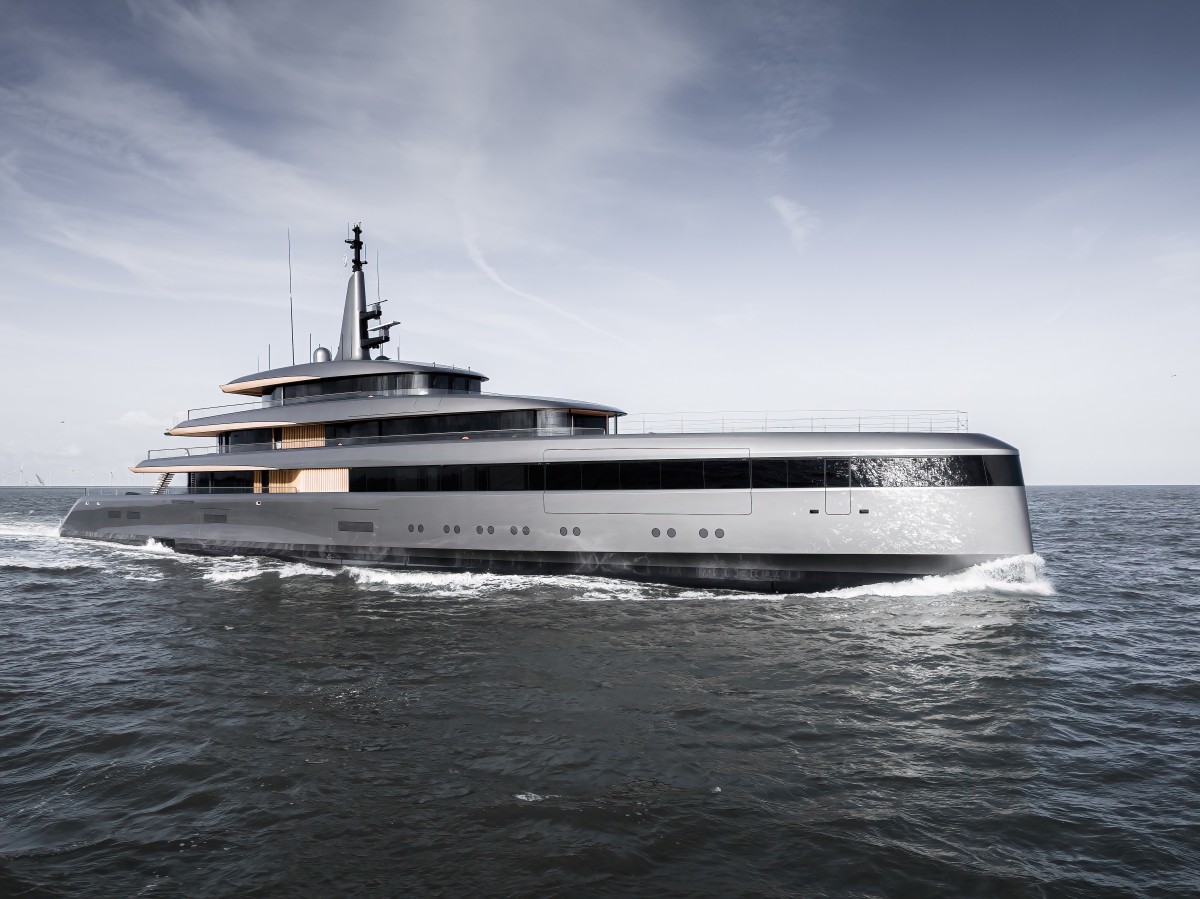
Feadship has delivered 83m Obsidian, its latest yacht designed to run on renewable diesel and electric propulsion. The ship is the first of Feadship’s new generation of large yachts with the aim of reducing carbon emissions through advancements in weight control, propulsion technology and the use of Hydrotreated Vegetable Oil (HVO) fuel, instead of traditional diesel.
Obsidian's trials were conducted with the engines running on HVO, which has the potential to reduce carbon emissions by 90% when compared to yachts operating on fossil fuels. Notably, HVO is a ‘second-generation’ biofuel, meaning that it was made using by-products rather than crops that compete with food production.
Feadship says the aim of the project was to build a more energy-efficient vessel than its first hybrid yacht, Savannah, which launched in 2015. Using Feadship’s Advanced Electrical Drive (FAED) programme for diesel-electric hybrid power, Obsidian has 4.5 times more electrical storage capacity than Savannah.
Bram Jongepier, Senior Designer, De Voogt Naval Architects, developed the Yacht Environmental Transparency Index (YETI), a sustainability index that provides guidance on how a yacht’s components and operations contribute to its carbon footprint and environmental impact, and used it during Obsidian's 12-month design process.
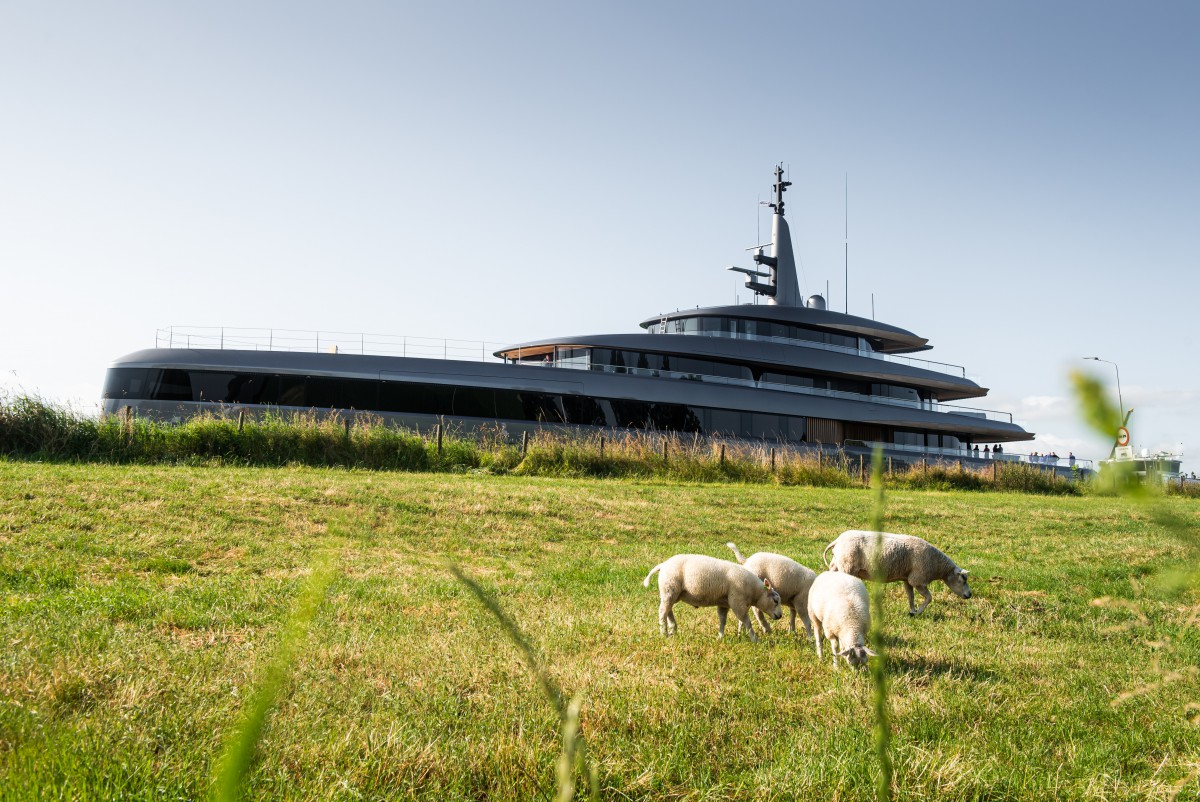
According to Jongepier, YETI can calculate 90% of the total lifecycle of a yacht. With YETI available to Water Revolution Foundation signatories, the Foundation predicts that the environmental impact of Obsidian will operate with 27% less total environmental impact than a yacht of similar size when powered by fossil fuel, and 60% less when using HVO.
Inside the hull, Obsidian’s propulsion and steering are supplied by two Veth contra-rotating thrusters that deliver both shaft and rudder functions. These are powered by a 4.5 MWh battery bank that is charged by four generators — two large and two small, custom, variable speed units based on tweaked CatC32 engines with permanent magnet alternators.
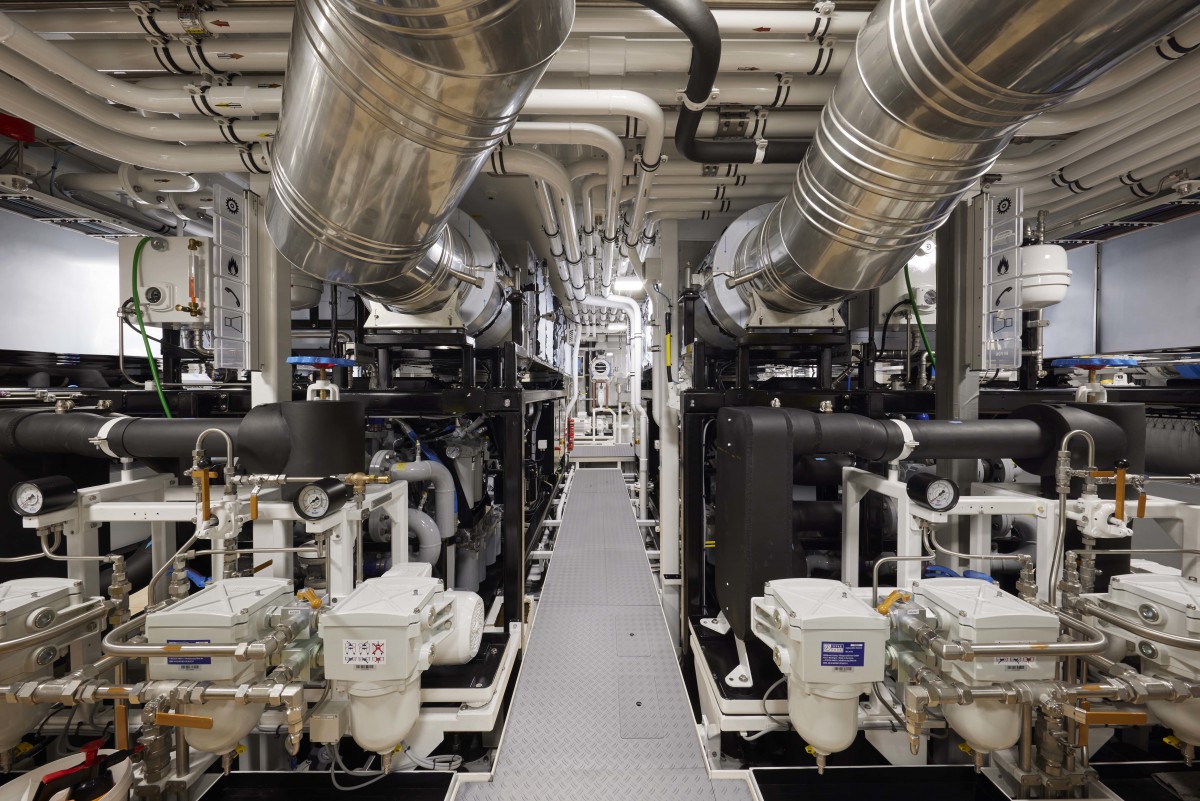
The change in propulsion methods alone didn't provide the level of fuel savings Feadship desired. Using the YETI tool, the shipyard noticed about 60% of the energy consumed goes simply to powering the onboard lifestyle. To combat this, Feadship sought to utilise the yacht’s waste heat for efficiency.
Feadship’s engineers introduced a heat pump system to pull waste heat from ambient seawater, generators and AC chillers. The heat pump then transports thermal energy from one place to another and is five times more efficient than making heat with a regular electrical heating coil, according to Jongepier.
Obsidian also has a single level engine room, which gave the designers more freedom in creating the interior layout and more space for guest accommodation with a total of seven staterooms. Jansen says the volume of the yacht is more typical of that on 100m Feadships. Both the exterior and interior design are by the British firm RWD and Switzerland-based MONK Design.
Obsidian will also employ Quantum XT™ (extendable) Fin Stabilizers, a semi-retractable boat stabilizer fin system that operates underway and at zero speed, optimised for energy efficiency.
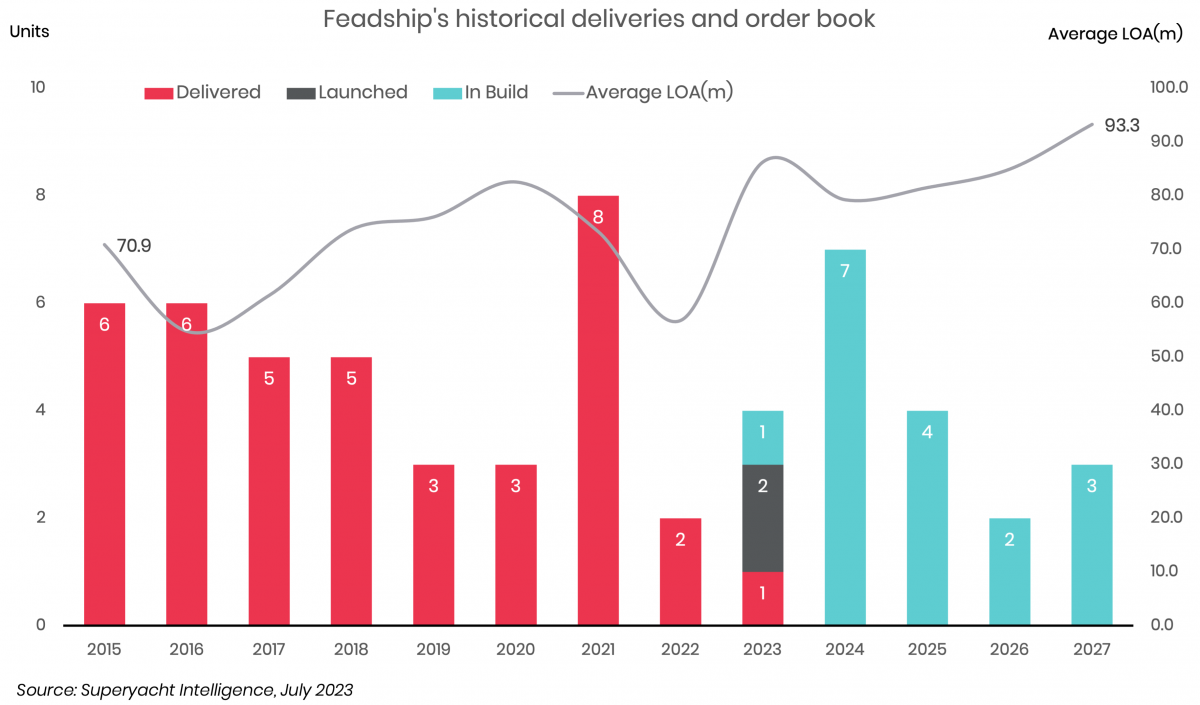
Renewable diesel and biofuels are becoming more prevalent in superyachting as the race to decarbonise the industry continues. And it is availability is increasing too. Recently, Peninsula announced that it will supply biofuels to yacht owners in the Gibraltar Strait and surrounding areas, having recently received its International Sustainability and Carbon Certification (ISCC).
Profile links
Click here to become part of The Superyacht Group community, and join us in our mission to make this industry accessible to all, and prosperous for the long-term. We are offering access to the superyacht industry’s most comprehensive and longstanding archive of business-critical information, as well as a comprehensive, real-time superyacht fleet database, for just £10 per month, because we are One Industry with One Mission. Sign up here.
Related news
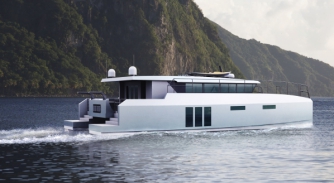
EMS completes methanol propulsion design for Archipelago Yachts
The marine systems designer says it is breaking new ground in the understanding of methanol-powered engines for yachts whilst working on the project
Technology
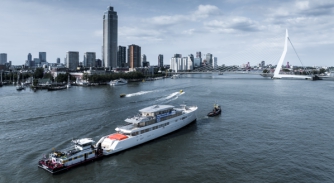
Feadship’s Project 825 on the move
Project 825 was spotted along the Dutch waterways on its way to the Feadship shipyard in Kaag earlier this week
Fleet
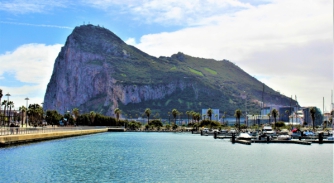
Peninsula to supply biofuel in Gibraltar
Chris Warde details how greater transparency within the biofuel supply chains will help decarbonise yachting in the Med
Crew

Turbulence ahead
As the landmark ‘greenwashing’ case against the Dutch air carrier proceeds to full trial, the superyacht industry should take note
Opinion
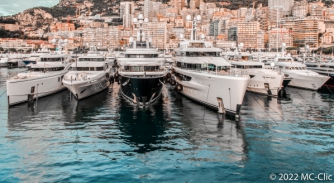
The Monaco Yacht Show’s plans for carbon neutrality
MYS emphasises the show’s commitment to sustainability and its ongoing efforts to minimise its environmental impact
Business
Related news
Feadship’s Project 825 on the move
1 year ago
Peninsula to supply biofuel in Gibraltar
1 year ago
Turbulence ahead
1 year ago



